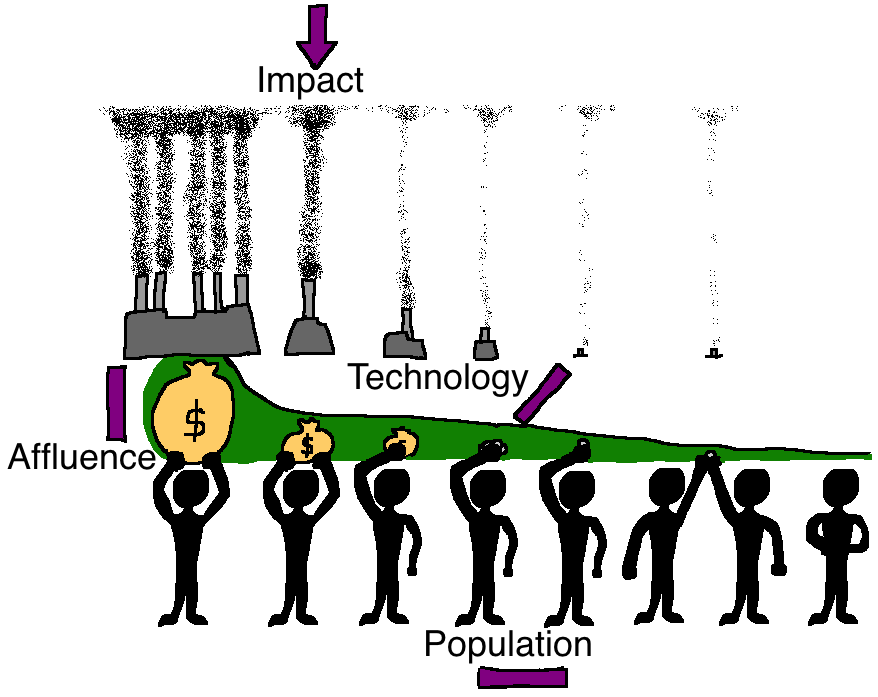|

New Polish Potatoes
Andrew C. (original recipe)
My notes for Utah begin and end with "condolences on your disappearing lake,"" which is
interesting because later I looked into what is the fastest growing state? I think I meant
to search for "highest birth rate" (South Dakota) but Utah is fastest growing and second
in birth rate. I mostly see human population growth as inevitably problematic, and yet
here we see present-day evidence of possible widespread trouble to come, that technology
can only mitigate. But this problem is also an opportunity to take agency over our species'
footprint on Earth.
Paul Ehrlich may have been quite alarmist, and also may have come to kind of weird
conclusions about immigration and other matters, but the math around human population is
pretty hard to argue against.
Earth does have a practical carrying capacity. The benefits of a young population (lots of
workers compared to retirees) in growth-centric capitalism is a pyramid scheme. Eventually we will need
to stabilize our population and face whatever complications come with that (the
burdens of an old society will only be temporary! we have awesome technology and we can get
through it and make sure future generations remember we did it!) and if you care about the
environment even a little it would behoove us to stabilize around a smallish population.
Look at the water situation in the western U.S.... Fewer people, above some threshold of
reason, means more natural resources to go around.
Or think about the energy sector.
Impact = Population x Affluence x Technology

When it comes to urban and agricultural development, wilderness is going to lose out.
We already don't have enough habitat to allow our extant native species to thrive. Even
if we do what we can for them, it could only be more awesome.
So what do we do? The best solution to human population growth seems to be the empowerment
of women. Scientific studies tell us so and it makes logical sense. Arguably a domestic
priority too, this should basically be our national foreign policy as a human rights issue,
but one among many; the fact that it will help save the Earth means it's also a national
security issue, it's a dual-threat, and 2024 still isn't the best time to be born a girl
on planet Earth, e.g., this.

For instance we could have a human rights surcharge for visiting countries that,
for example, tolerate the violation of women's rights. It could be waived for people
of low income or with family ties. The money would go to organizations in that country
that advocate human rights, if such organizations exist, and if not, then this is a job
for our State Department/embassies/ambassadors etc. to help figure out, where the resources will go.
We're not trying to stop all travel to such destinations because cultural exchange is
essential. It's a surcharge, on people who can afford it, for human rights.
I will be first to point out, many will call the United States a human rights violator,
and all I can say is that other countries are free to impose a human rights surcharge against
us and to support organizations that fight for human rights victims of the U.S.. I would
welcome that.
Thoroughly exhausting this point, I will also acknowledge that the definitions of human
rights are subjective but the idea is that we are discussing them and creating real-world
mechanisms to actively address concerns. This is just one facet of foreign policy but polls
show you don't care about foreign policy so surely I've written enough.
|
Human rights transcend borders. We should be
respectful and potentially patient about it, but I will point out again, we interfere with
other countries all the time in the name of national interest. At least we should acknowledge
the issues. And I always advocate a collaborative approach. Sometimes shaming is important
but that's not necessarily what's going on here.
If you are still alarmed by human population growth alarmism, I've heard the arguments
that such concerns are essentially racist and I am trying to open my heart to this idea but if
you look at what is happening in Utah with the Great Salt Lake, you will see this is real, and
you can't get much whiter than Utah.
Today there are nearly 8 billion people. In 1960 there were 3 billion. I say we shoot
for that, because it's easy to remember. It's kind of fanciful to imagine that the Earth
could collectively set a meaningful target, so take it for what it's worth. But everything
starts with imagining a better world, and I like to imagine 3 billion people.
Cucumber Salad
Vegetable Medley
- 1 cu. frozen Peas, corn, and carrots, thawed
Potato Mixture
Preparation
For the cucumber salad: Combine all ingredients.
Start the beet boiling. It will require 30 minutes. With about 15 minutes remaining,
add potatoes to the pot. When finished, drain and separate beet from potato. Dice beet slices.
For the vegetable medley: Warm oil over moderate heat in a large pan. Add asparagus and thawed
vegetables and cook
2 minutes. Add diced beet and season with salt and pepper.
For the potato mixture: Mix potato and quinoa. To serve: top with vegan cheese and
microwave 45 seconds, then serve with cucumber salad and vegetable medley.
Discussion
This was way better than it had any business being. I decided to lean heavily into corporate
products (cheese, sour cream) on this one, on the theory that the potato and other vegetables
would shine through. I was right, but the meal outperformed my expectations.
|
|